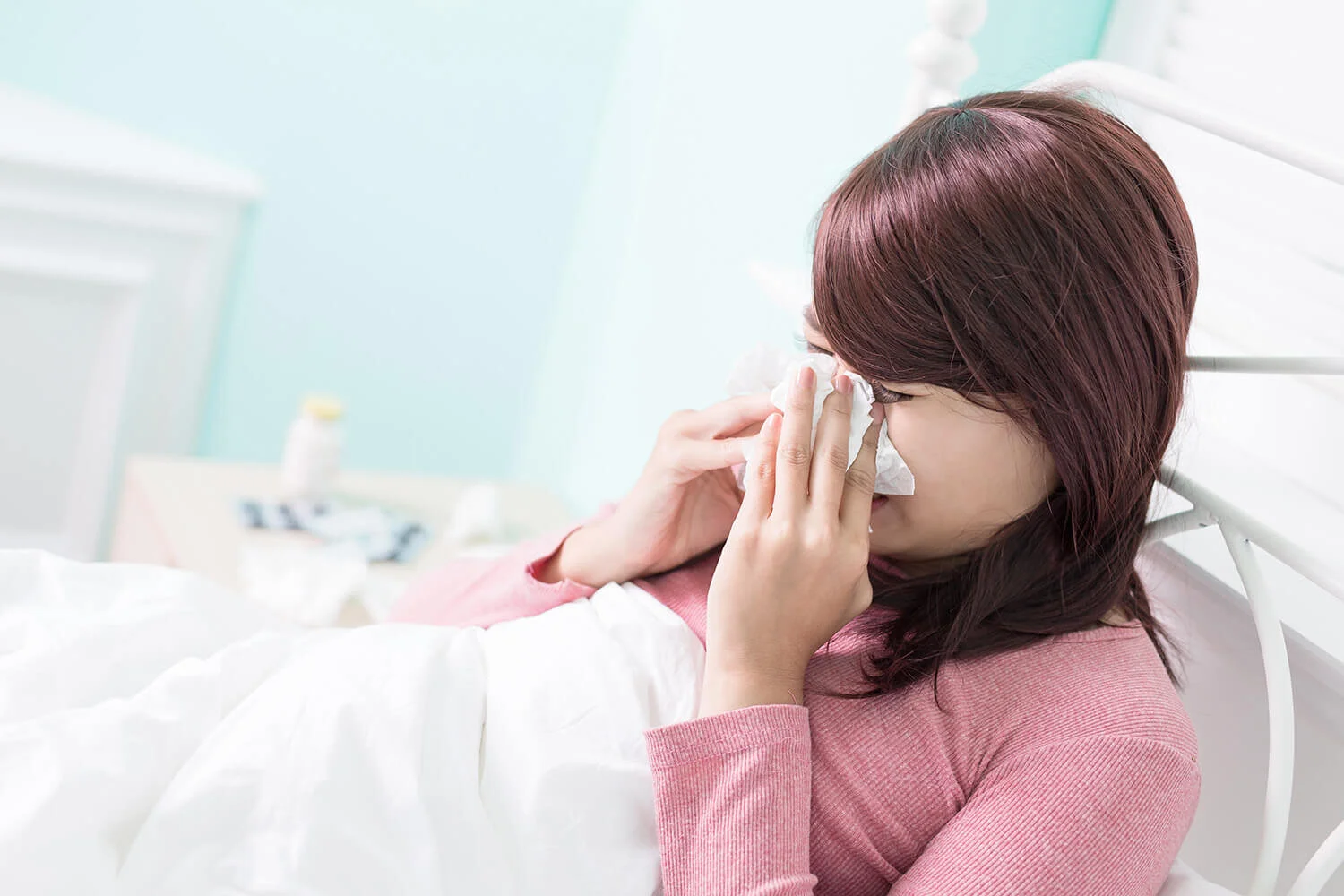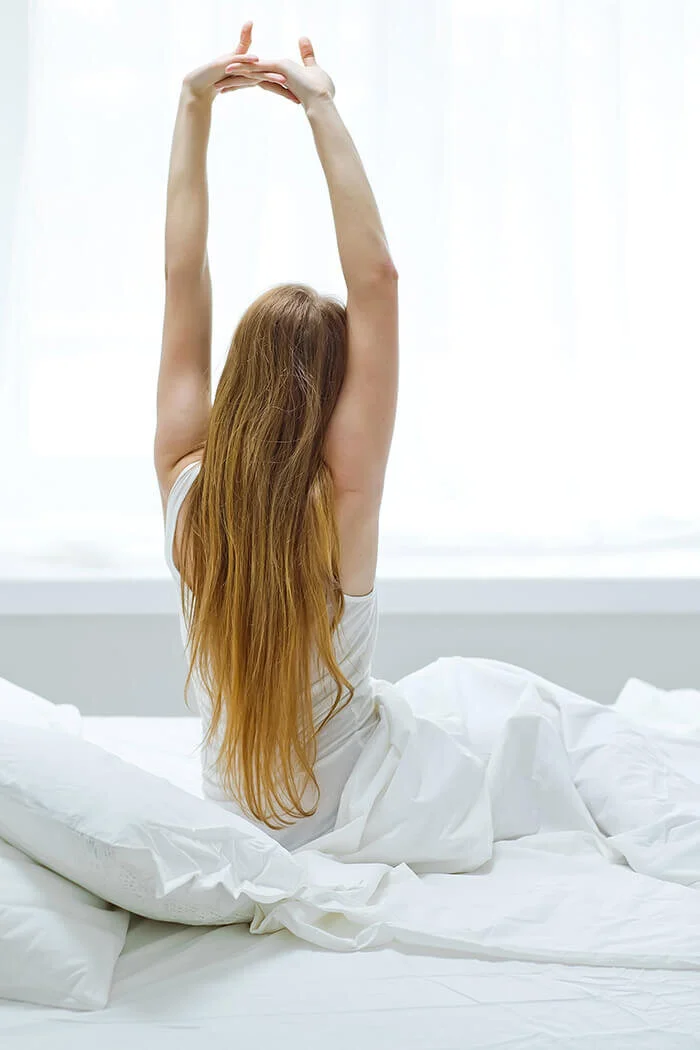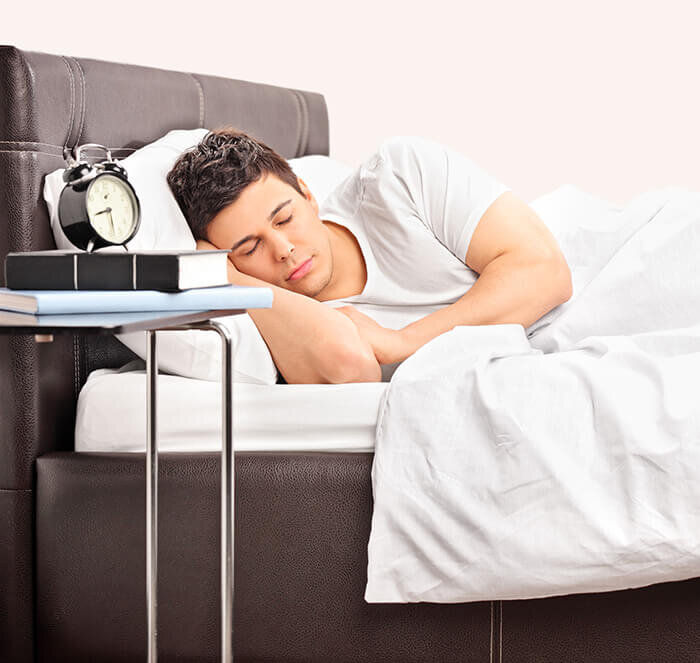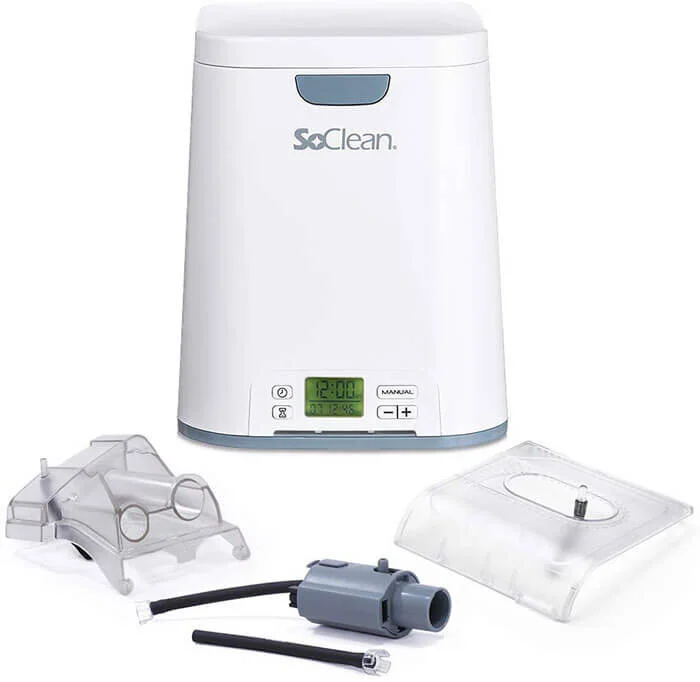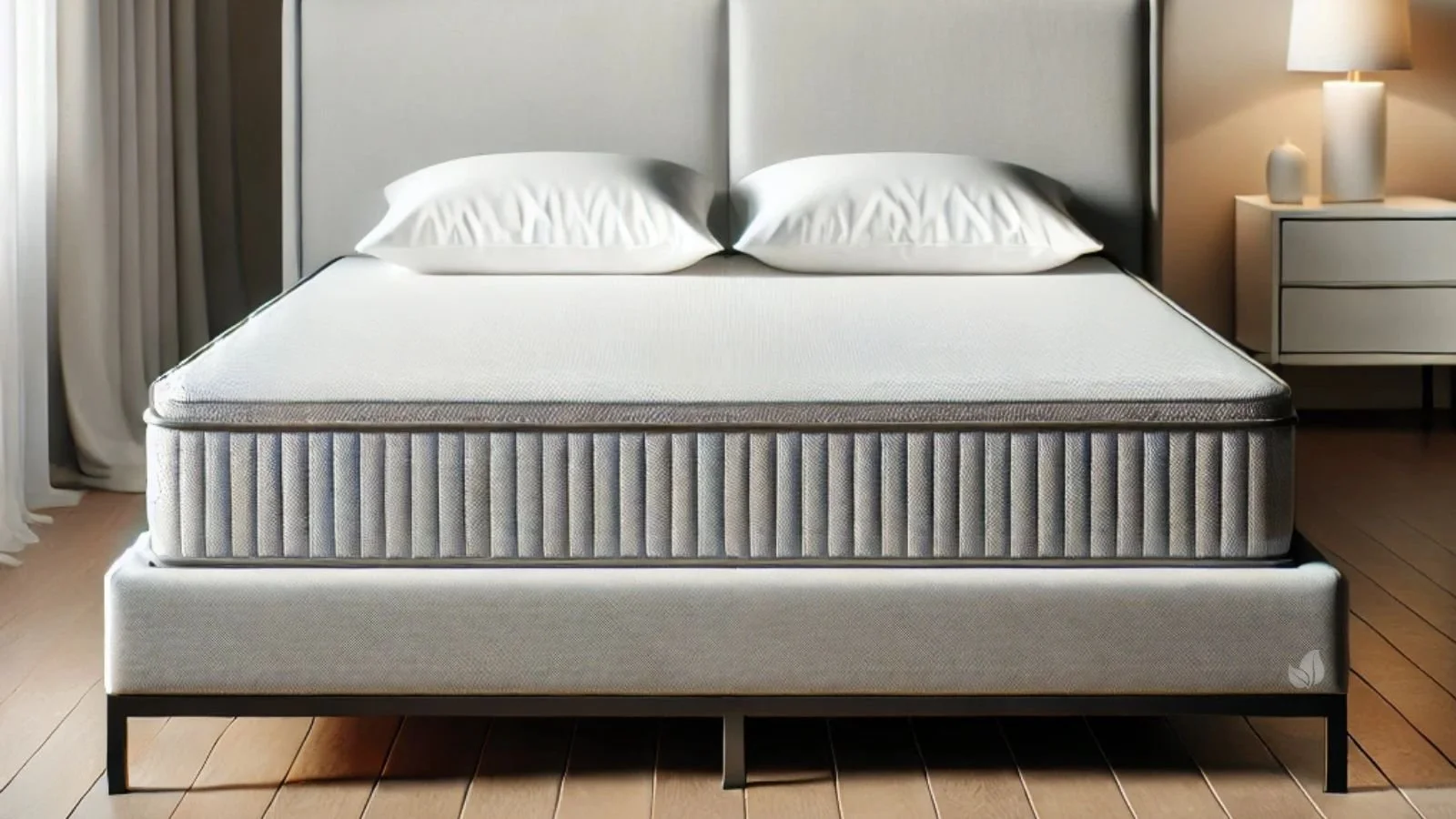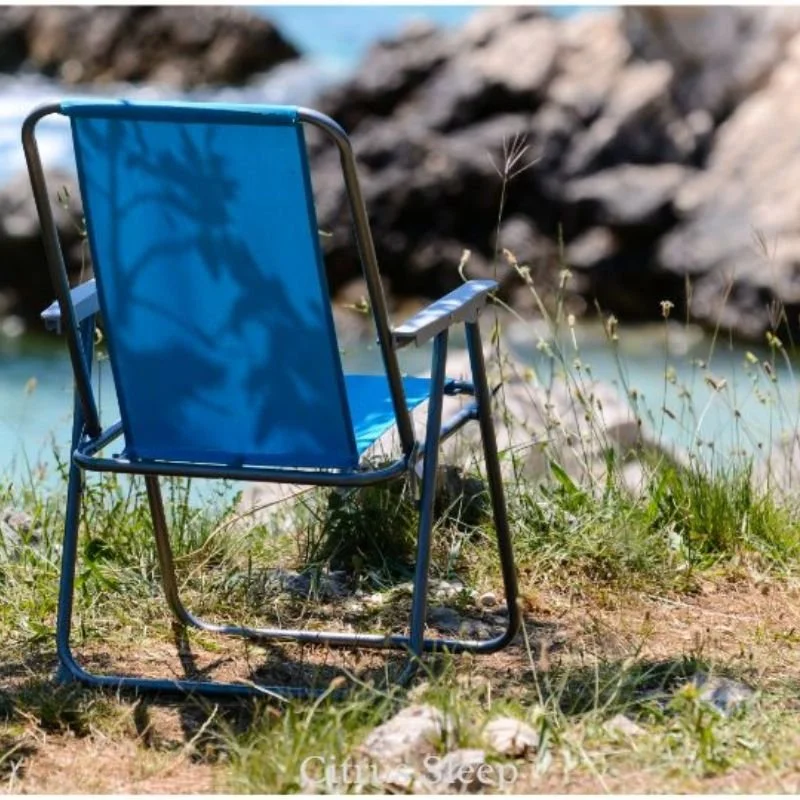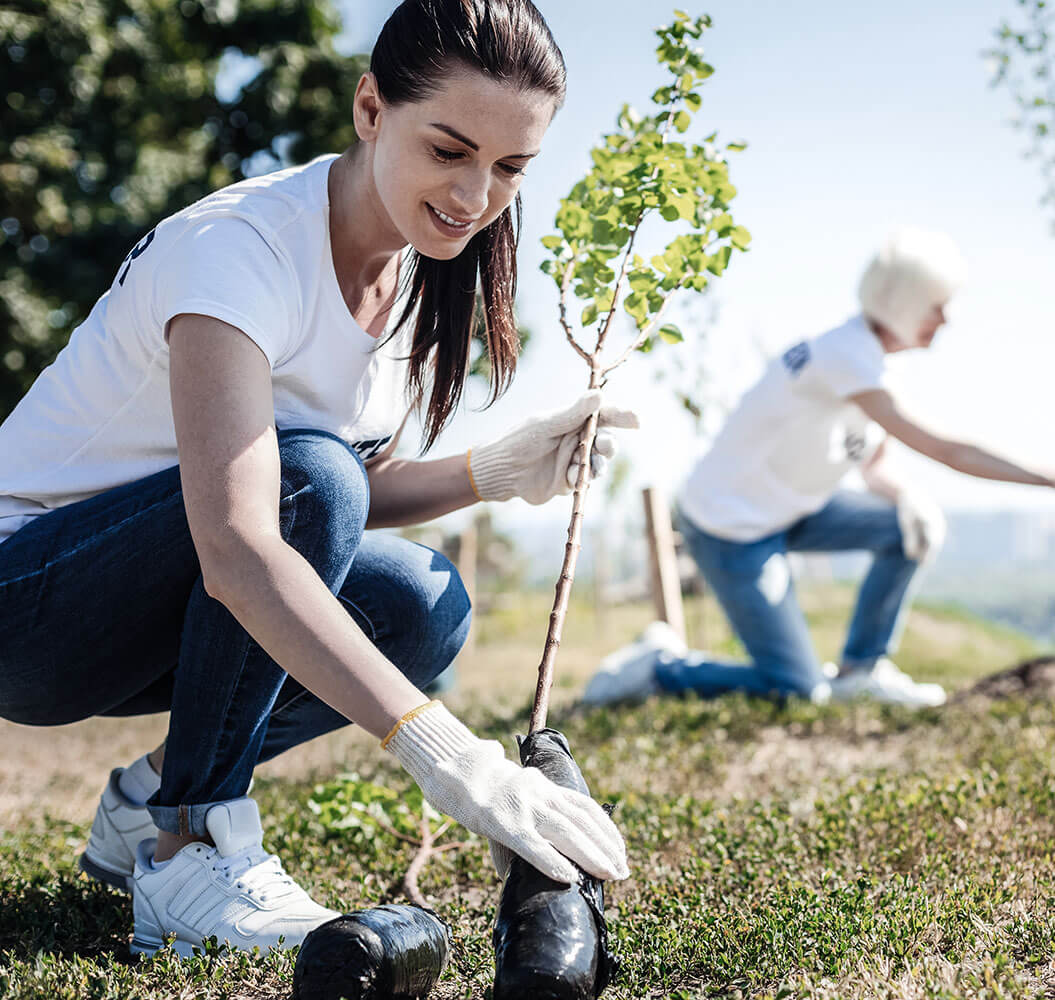Understanding Seasonal Allergies and How It Affects Your Sleep
It doesn’t matter whether your allergies strike in the spring, summer, or fall - they can make you totally miserable at any time of the year.
It’s disappointing, too, since the change of the seasons should inspire awe and happiness - and not sniffles and dread. Spring should mean flowers and fresh air, fall should be all about those gorgeous crimson leaves, and summer should be spent splashing in the swimming pool.
If you have seasonal allergies, though, it’s going to be difficult for you to enjoy the great outdoors. Not only that, but suffering through allergy season can also take a hit on another area of your life - your sleep.
When Does Allergy Season End?
When you’re dealing with a scratchy throat and a stuffy nose, it can be difficult, if not impossible, to fall asleep. You may find yourself dealing with seasonal allergies relief even longer than necessary because your body can’t get the sleep it needs to restore itself and heal.
If you’re interested in learning how to cope with seasonal allergies until the season ends, don’t worry - you’ve come to the right place.
How to Tell That It’s Allergies Affecting Your Sleep
As the sun begins to stay in the sky a little bit longer and shines even brighter throughout the day, you might be wondering whether your symptoms are related to allergies - or if you have a cold or another common illness.
Truthfully, the symptoms can be hard to distinguish. It’s important to recognize, though, that even if you’ve never had allergies in your entire life, they can come on suddenly. This is especially true if your body has recently undergone some physiological changes, such as pregnancy, menopause, or something similar.
Seasonal allergies are caused when you inhale airborne pollen or even mold spores. These can enter your body through your throat, eyes, or nose. Allergies are more common than you might think, too - in fact, up to 50 million Americans suffer from seasonal allergies (also known as allergic rhinitis and hay fever).
When you inhale these spores and pollen particles, your body reacts by activating its emergency responses to fight the invaders. It’s trying to do the right thing, but really doesn’t know the difference! It releases chemicals (histamine is the most famous) to fight the actually harmless particles, causing a whole host of symptoms that cause you to suffer.
These vary from person to person but can include an itchy mouth, nose, throat, or eyes, along with sniffling and a headache. You might find yourself suffering from sneezing fits or a runny nose, or even watery eyes.
Unfortunately, the more often - and more severely - you experience these symptoms, the more likely you are to suffer from interrupted sleep, too. While a bit of lost sleep might not seem like a big deal, it can actually make your predicament much, much worse.
Allergies and Sleep
One thing that almost all allergy sufferers have in common is that they become nasally congested at least once during their bout of allergies. When you become congested, your nasal passages and sinuses actually swell, which causes your upper airway to narrow.
If your partner has ever told you that you snore when you are dealing with allergies, he’s not making it up - snoring and sleep apnea are both increasingly common among people dealing with allergies.
Sleep problems can also arise when breathing as a whole becomes more difficult. Almost half of all patients with allergies report difficulty sleeping when they are suffering, according to the National Institutes of Health.
These sleep problems won’t just make you feel a little foggy or sleepy during the day. Losing sleep at night (whether you’re aware of it or not) can cause issues like reduced motor and psychomotor abilities, lowered cognitive ability, memory impairment, and trouble concentrating.
How to Deal With Seasonal Allergies
Luckily, there are plenty of ways that you can learn how to cope with your seasonal allergies so you can finally get some rest including some of the best allergy medicine. These tips will not only help you sleep better, but will also make it easier for you to cope with your allergies during the daytime hours, too.
Minimize Your Allergen Exposure
The easiest way to reduce your symptoms during allergy season is, unfortunately, to reduce your exposure to allergens. This is easier said than done for most people - after all, how practical is it to stay inside all day?
However, you don’t necessarily need to keep yourself locked up all day in order to see a benefit. Just make it a goal to stay indoors during high-pollen times. Check the local weather forecast to determine these in your local area. These times usually include the early morning hours as well as on dry, windy days when pollen is shifting around outside.
Ever stepped outside on a windy day to see your car absolutely drenched in pollen? That’s a good sign that you should stay indoors.
You can also shut your doors and windows, which will prevent pollen from getting inside. If you do go outside, remove your clothing once you get indoors and wash it immediately. The same goes for bedding. While it’s not as eco-friendly as using a clothesline to dry your clothes, make an exception during allergy season and dry loathing in your dryer. This will prevent pollen from collecting on your garments.
Instead of using a fan, use your air conditioner to keep things cooled down. Drive with your windows rolled up and, if you have forced-air heating, use high-efficiency filters and maintain them on a regular basis.
When you come inside, take your shoes off before entering the house. Wash and dry your linens every few days in the hottest possible setting, and if you have pets, make sure they sleep in their own beds -at least during the allergy season.
Don’t be afraid to delegate some of your normal outdoor chores to others who don’t have allergies. If you suffer from seasonal allergies, mowing the lawn might not be the best choice. Wait until the day after it rains to venture out, and wear a pollen mask if you can’t avoid doing outdoor chores during allergy season.
Eat the Right Foods
Just as you would eat chicken noodle soup when you’re suffering from a cold, there are plenty of foods you can eat that will not only boost your immune response (making it easier for your body to respond to seasonal allergy symptoms) but also make you feel better in the moment, too.
There are some foods, like apples, that have powerful antioxidants that can suppress histamine production and are considered as some of the best allergy medicine. Garlic is another good choice - and as an added benefit, it will also suppress your histamine production. You might also consider eating fish and nuts, which contain beneficial fatty acids that can reduce inflammation. Interestingly, people who follow a healthy Mediterranean-style diet rich in fish, nuts, and fruits and vegetables tend to have less prominent allergy symptoms.
Fermented foods are also beneficial. These increase the number of healthy, beneficial bacteria in your digestive tract. This, in turn, is believed to boost your immune functioning and to make your body more responsive at dealing with perceived threats - including allergens. Fermented foods include miso, yogurt, sauerkraut, and kimchi.
It’s not just eating, either. Drinking herbal teas can help clear out your sinuses, and many herbs even have innate qualities that can heal and soothe your allergy symptoms. They will also help lull you to sleep. Just avoid caffeinated beverages and remember that some herbs have properties that can mimic the effects of allergens. For example, if you’re allergic to ragweed, you might want to avoid chamomile tea.
Use Natural Remedies
If you’re suffering from allergies, don’t think you have to turn to medications right away. There are plenty of homeopathic solutions you can try before you sift through the medicine cabinet.
For example, taking a hot, steamy shower when you get home at night can help clear out your sinuses. It can also rinse allergens off your skin and out of your hair before you go to sleep.
Using a saline spray or nasal rinse can also be beneficial. This technique uses saltwater to flush allergens from your nasal passageways. It can be a highly effective way to both treat the symptoms of and prevent seasonal allergies.
There are other natural remedies out there that you can follow, too. Some people swear by eating pineapple to eliminate allergy symptoms, while others take spirulina and butterbur extracts. The benefits and safety of these haven’t been studied extensively, but it’s worth our consideration.
Keep Your Stress Levels Low
Easier said than done, right? However, keeping your stress levels low can help improve your allergy symptoms. High levels of chronic stress - so not the kind you experience every now and then when you have a big work project due - are connected to lowered immune functioning.
Make destressing part of your daily life. Whether you’re engaging in yoga or meditation, doing some journaling, exercising, or even taking a relaxing bath before bed it’s important that you find activities that work well for you personally to help you stay calm and unwind.
Experiment With Acupuncture
Acupuncture doesn’t work for everybody, and even if it works for you, it won’t totally remove your allergies. Your body will still want to produce histamines to fight off allergies.
However, acupuncture can play an effective role in treating your allergies. It can relieve your allergy symptoms and provide long-lasting relief.
Consider Immunotherapy
Consider Immunotherapy For Seasonal Allergies Relief
Immunotherapy is the only proven way to permanently rid yourself of allergies. Unfortunately, it takes some time and commitment and is incredibly slow to take effect.
This practice works by slowly exposing your body to whatever it is that you are allergic to - it’s almost like a vaccine. It can be done with shots or with oral drops, but over time, immunotherapy will teach your body that the allergens aren't foreign invaders and so it doesn’t need to react in such an extreme manner.
You can receive immunotherapy for just about any kind of seasonal allergy, including ragweed and grass (it’s also available for allergens like mold, dust, and pet dander). It will require a long-term commitment (sometimes two years or more) and you will want to chat with a doctor to find out if it’s the right choice for you. However, most patients see some sort of relief, with a majority seeing benefits after just a few months.
Clean Up Your Home
Clean Your Home For Seasonal Allergies Relief
If you also suffer from a dust allergy, you probably already know the importance of keeping a tidy home to reduce your exposure to allergens. However, this tip holds true for seasonal allergy sufferers as well.
For example, by vacuuming and mopping often, you can eliminate the build-up of symptom-causing allergies on the floor. You should also dust regularly to remove pollen on the surfaces of the home.
You can also use a humidifier and/or air purifier in your bedroom and the rest of your home. Opt for one that has a HEPA filter (the same goes for your vacuum cleaner) as this will help filter pollen out of the air to make it a bit easier for you to breathe. A humidifier will also moisten the air to make it easier for you to inhale.
The occasional exception to this rule is if you have a mold allergy, too. Sometimes, humidifiers can exacerbate this issue, especially if you don’t clean them out on a regular basis - the interior of the unit can develop mold if you are not careful.
Practice Good Sleep Hygiene
While practicing good sleep hygiene won’t necessarily rid you of your allergy symptoms, it can improve the overall quality of your sleep - which can, in turn, help you ward off allergy symptoms. First, make sure you are getting at least seven to nine hours of sleep each night. Try to go to bed and wake up at the same time every day and dedicate your bedroom to sleep and not work, eating, or anything else.
Limit your daytime naps - this can be tricky when you’re feeling under the weather! Follow a strong bedtime routine that gives you plenty of time to wind down and eliminates screen time. Keeping your bedroom dark and cool can also help you get the zzz’s you need.
Try Medication
Medication should be used as a last resort, as it can affect your sleep cycles in a negative way. Certain allergy medications, like Benadryl, can make it harder for you to stay awake. That may seem like a good thing, but you will likely feel groggier when you awake.
Check with your doctor to find the best allergy medicine, or the right antihistamine or nasal decongestant for you. You may need to do some trial and error to find a good option that doesn’t interfere with your sleep.
Allergies and Sleep Apnea Solutions
If your seasonal allergies are causing other health problems, like sleep apnea, that’s bad news. It is not uncommon for allergies to cause or exacerbate symptoms of sleep apnea, which can in turn lead to a variety of other conditions (like heart problems).
While CPAP therapy can help treat the symptoms of your apnea, it might not permanently solve your problem.
However, if you do use CPAP, you may want to turn to a full face mask. Seasonal allergies cause discomfort and swelling in your nasal passages, which can change the way you breathe and make it more difficult (or impossible) for you to breathe through your nose. With a full face mask, you will have the necessary pressure to keep your airways open.
You might want to ask your doctor about automatic positive airway pressure therapy. This alternative to CPAP involves using a range of high and low pressure settings. The unit adapts to your needs, unlike a CPAP machine which blows a stream of pressurized air at one setting.
An APAP machine can elevate or lower the pressure depending on how bad the blockages are in your nasal passages, making it more effective.
Finally, it’s important that you check in with a sleep doctor if you have seasonal allergies that are impacting your sleep. Even if you don’t think sleep apnea is a concern for you, it could be worth a check-up to rule out other sleep disorders and to find the intervention that will work best at addressing your needs.
Seasonal Allergies Relief Tips For Quality Sleep
If you suffer from allergies, you shouldn’t have to suffer from insomnia, too. Missing sleep can make it harder for you to recover from other illnesses and even just to go about your daily business. Consider these tips for better sleep and overall health, and with time you will find that coping with seasonal allergies relief in the right way can promote better, more restorative sleep.
Shana Thompson is a full time professional writer and editor. Shana has worked extensively in the fields of content marketing, on-page and off-page SEO (guest posts, backlink acquisition), and creative writing. As an experienced pro content writer, Shana has worked on several magazines, publishing companies and marketing agencies. Many recent projects have included everything from nutrition and health services, where a lot of research and citations were needed, to writing about health, sustainable, eco-friendly products.
Follow Shana at Shana Thompson

